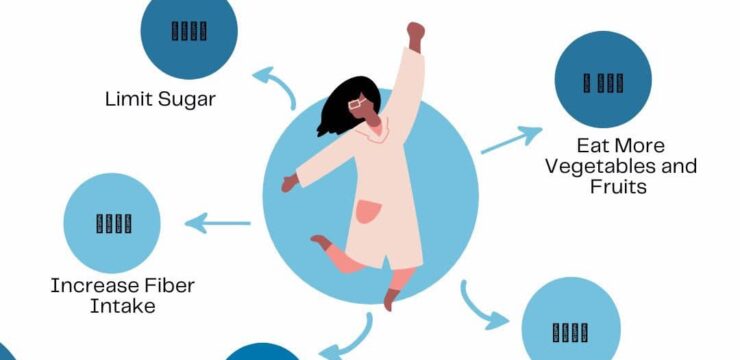Finding balance in our daily lives often feels like trying to walk a tightrope while juggling multiple priorities. Between work, family commitments, social obligations, and personal goals, it is easy for our eating habits to take a back seat. Yet, maintaining a consistent approach to healthy eating can significantly improve not only our physical well-being but also our mental clarity and energy levels. The key lies in combining thoughtful planning with an awareness of our body’s needs, creating a rhythm that feels natural rather than forced.
A balanced approach to healthy eating starts with understanding the basics. Our bodies require a variety of nutrients, and no single food can provide everything we need. Proteins, healthy fats, carbohydrates, vitamins, and minerals all play distinct roles in maintaining optimal health. Proteins help repair tissues and support muscle growth, while healthy fats are essential for brain function and hormone regulation. Carbohydrates are the body’s primary energy source, but choosing complex carbs like whole grains and vegetables can prevent energy crashes. Vitamins and minerals, often obtained from a colorful assortment of fruits and vegetables, bolster immune function and support countless biochemical processes. Recognizing the importance of these nutrients encourages us to build meals that are not only satisfying but also nourishing.
Planning is a cornerstone of maintaining balance. Preparing meals ahead of time or at least having a rough outline of daily meals can prevent last-minute choices that often lean toward convenience rather than nutrition. Simple practices, such as creating a weekly menu or making a grocery list focused on wholesome foods, can reduce decision fatigue and promote more mindful eating. By taking the time to plan, we also minimize the risk of impulse eating, which can occur when hunger strikes unexpectedly and healthy options are not readily available.
Incorporating balance also means listening to your body and allowing flexibility. Rigid rules or extreme restrictions can make healthy eating feel like a chore, leading to burnout or overeating. Instead, approach meals with an attitude of moderation. Treat yourself to your favorite indulgences occasionally, but do so mindfully. Savoring a dessert or a special snack without guilt reinforces a healthy relationship with food and prevents feelings of deprivation that can disrupt long-term habits. By blending mindful choices with planning, eating becomes an enjoyable part of daily life rather than a source of stress.
One practical method to achieve everyday balance is to focus on portion control. Even the healthiest foods can contribute to weight gain or digestive discomfort if consumed in excess. Using smaller plates, serving balanced portions of proteins, carbohydrates, and vegetables, and being attentive to hunger and fullness cues can guide more appropriate portion sizes. This practice not only supports physical health but also encourages an appreciation for the sensory experience of eating. Taking time to notice textures, flavors, and aromas enhances satisfaction and reduces the tendency to overeat.
Hydration is another fundamental element often overlooked in discussions about balanced eating. Water supports nearly every bodily function, from digestion to circulation to temperature regulation. Drinking enough water throughout the day can also help prevent overeating, as thirst is sometimes mistaken for hunger. Including herbal teas or infused water can add variety and enjoyment without added sugars or calories, contributing to a sustainable approach to hydration.
Meal timing and consistency can further enhance balance. While there is no one-size-fits-all schedule, establishing a routine where meals and snacks are spaced appropriately can maintain steady energy levels and reduce erratic hunger. This approach encourages stable blood sugar levels, supporting mental focus and mood regulation throughout the day. A consistent rhythm also allows the body to anticipate nourishment, creating a natural flow that aligns with daily activities.
Healthy eating is not just about the foods we choose but also about the environment and mindset in which we consume them. Eating at a table without distractions, engaging with family or friends during meals, and dedicating time to enjoy each bite cultivates mindful habits. These practices foster a sense of presence and appreciation, transforming routine meals into opportunities for connection and reflection. In contrast, eating while distracted by screens or multitasking often leads to mindless consumption, diminishing satisfaction and increasing the likelihood of overeating.
Another consideration in creating balance is meal diversity. Repeating the same foods day after day may feel convenient, but it can lead to nutrient gaps and boredom. Exploring new fruits, vegetables, grains, and protein sources introduces variety and keeps meals exciting. Seasonal produce, in particular, offers fresh flavors and optimal nutrient density while encouraging a natural rhythm with the changing seasons. Cooking creatively with different herbs, spices, and preparation methods can make even simple ingredients feel novel and enjoyable.
Planning for balance also involves being proactive with challenges and social situations. Special occasions, work events, and dining out can test our healthy eating intentions. Rather than approaching these moments with restriction or guilt, it is helpful to plan ahead. Reviewing menus, preparing small snacks, or allowing yourself to enjoy a treat mindfully ensures that balance is maintained without sacrificing social enjoyment. Developing strategies for these scenarios strengthens confidence and reinforces a sustainable, flexible approach to healthy eating.
Finally, self-compassion plays a vital role in sustaining balance. There will be days when plans go awry, cravings feel overwhelming, or circumstances limit healthy options. Rather than viewing these moments as failures, it is important to approach them with understanding and perspective. Each meal is an opportunity to nourish your body, and one imperfect choice does not negate the progress made in previous meals. Embracing patience and kindness toward yourself creates an environment where healthy habits can thrive naturally.






